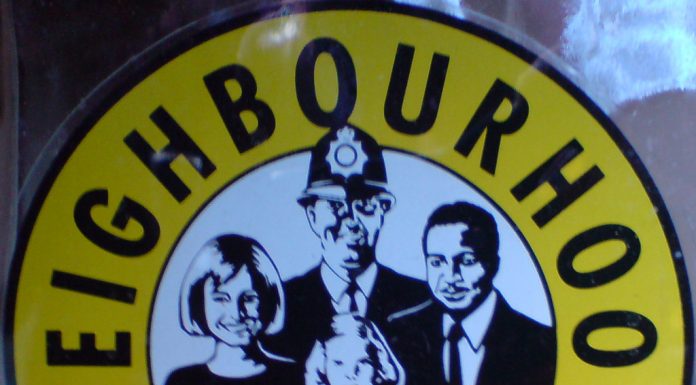By Pieter de Jonge, a Dutch historian and publicist
Contrary to popular belief, Helmut Kohl was not pushed into accepting the Euro. He always was a firm supporter.
It is often stated that German chancellor Helmut Kohl agreed to give up the German Mark for the Euro in exchange for French president François Mitterand giving his blessing to German reunification. Some even think that the Germans would have otherwise never agreed to give up their hard currency for a European currency union with countries that do not share the German consensus on budget discipline and minimizing inflation.
According to this theory, Kohl grudgingly accepted, thereby clearing the way for the introduction of the Euro. However, this perception needs to be corrected.
Kohl: Eurofederalist to the core
Kohl had always been in favour of European unification. He had always held the founding fathers of the Christian Democratic Union in high esteem. Even after Konrad Adenauer (1876-1967) and Ludwig Erhard (1897-1977) retired from public and party functions, he stayed in touch with them. Kohl was very much in agreement with Adenauer’s view that it was necessary to embed Germany in a European framework.
He also shared Adenauer’s opinion that the Germans had to make up for the wars they had started – the Franco-German war of 1870-1871 and the two World Wars. Kohl, who had obtained a doctoral degree in history, took more of his inspiration from the past. He thought that if many smaller German kingdoms, duchies and free states could unite into a federal Germany, then Germany and other countries could unite into a United States of Germany. His life-long interest in local history taught him that the boundaries of his own home state of Federal Republic of Germany, Rhineland-Palatinate, had changed over the centuries. He became to regard boundaries as artificial and temporary.
In 1973, he became national chairman of the CDU. At a party conference in 1976, he gave a speech on the importance of European integration. There, he stated he spoke in the name of ‘we, young European citizens’, saying they favoured European unification over ‘national selfishness’. He urged the party to support the political and economic unification of Europe – including monetary unification, receiving applause from the attendants (p. 159-164 – Protocol of the 24th party conference of the CDU at Hannover, May 24-26 1976, p. 159-164)
Party conferences contain lots of speeches and motions. However, this ‘European Manifesto’ became the blueprint for the European chapter of the foreign policy section of the 1978 CDU party manifesto (p. 55-57). Only the part supporting a European currency was omitted. It attributed an important role to the European Parliament, which was envisioned to become the federal parliament of Europe. It contained many similarities to previous ideas on a federal Europe of Walter Hallstein (1901-1982), who was the first president of the European Commission from 1958 until 1967. It also resembled the plans for an upgraded European Commission and European Parliament that were later promoted by Jacques Delors, who served as EU Commission president from 1985 until 1995. Delors hoped to achieve a federal Europe before the turn of the millennium, a goal Kohl supported.
Political historian Hans-Peter Schwarz, who published an authorised biography on Kohl in 2012, stated that he was a doctrinarian politician when it came to Europe, deliberately attempting to realise his ideals (p. 399). Already as the leader of an opposition party in the 1970s, he consciously forged contacts with Christian democratic and conservative leaders in other European countries. He also stayed in touch with Christian democratic members of the European Parliament, and kept doing so after becoming German chancellor in 1982.
Advocating a single European currency
In the 1980s, most Western European leaders assumed that the communist regimes of Eastern Europe would collapse someday, if only because of the poor economic state of the Eastern European countries. It would make sense to them that West and East Germany would also reunite at some point. Yet everyone was caught by surprise when the Berlin Wall fell in October 1989, and when unification already became an option in 1990.
Dutch journalist Michèle de Waard, an expert on Germany and economics, has pointed out in a contribution to an academic publication that Kohl already favoured a single European currency before the fall of the Berlin Wall. It was being discussed at a meeting of the European Council on June 27-28, 1988. At the eve of this conference, Kohl spoke to the Bundestag, stating that a united Europe should include an economic and monetary union with a European Central Bank and a European currency (Hanco Jürgens and Ton Nijhuis (eds), De vleugels van de adelaar. Duitse kwesties in Europees perspectief (Amsterdam, 2017), p. 195.)
Kohl genuinely believed in federalising Europe. He always considered giving up the German Mark as inevitable.
Kohl preferred political union before economic union
This did not mean that he and French President François Mitterand were on the same page. The latter favoured an economic union, believing that this would serve French interests. He thought that given that West Germany already was an economic powerhouse, one could only imagine what it would become if the two Germany’s would unite, at the expense of France. Locking Germany into a European economic union would slow down Germany’s economic growth, Mitterand thought, while a European currency would also be more stable than the French franc.
Kohl was not against economic unification, but believed it should be preceded by political unification. What would be the point of a federal currency without a federal government and a federal parliament? Here, both himself and Delors overlooked how attached France’s leading politicians, including president Mitterand, were to France as a sovereign nation state. Mitterand played along with Kohl and Delors, only to steer the European process in his preferred direction later: an economic union without political unification.
In the end, when the Maastricht Treaty was signed in 1992, Mitterand and Delors stood alone in their desire to federalise Europe politically. From that point on, Kohl, who was a pragmatic doctrinarian, then settled for doing everything in his power to enable what was achievable: the introduction of the euro, which was ultimately decided later that decade.
Kohl’s own personal feelings may not have been representative for those of the German political establishment, the German central bank and ultimately the German population, who were in favour of Europe but turned out to be sceptical of giving up the D-Mark. However, he did not grudgingly agree to give up the Mark. He considered it as a necessary step to unite Europe, which mattered as much to him as uniting Germany. If anything, to him it meant killing two birds with one stone.
A version of this article was also published in Dutch, by Historiek.net
Disclaimer: www.BrusselsReport.eu will under no circumstance be held legally responsible or liable for the content of any article appearing on the website, as only the author of an article is legally responsible for that, also in accordance with the terms of use.













